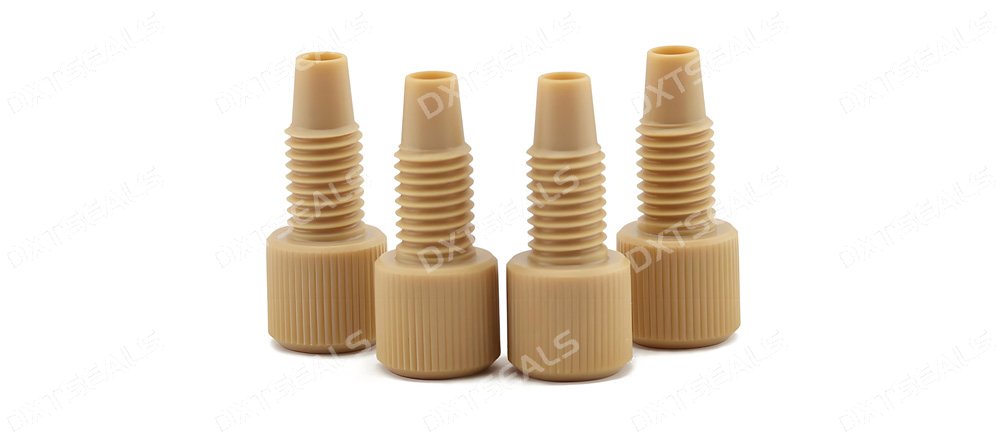
Medical technology has evolved significantly, and material selection plays a crucial role in enhancing the safety, durability, and functionality of medical devices. Polyetheretherketone (PEEK), a high-performance thermoplastic, has emerged as a game-changer in medical device manufacturing. Known for its biocompatibility, sterilization resistance, mechanical strength, and lightweight properties, PEEK is widely used in implants, surgical instruments, and various healthcare applications.
This article explores the benefits of PEEK in medical device manufacturing and why it is becoming the preferred material in the healthcare industry.
1. Exceptional Biocompatibility for Implant Applications
One of the primary reasons for PEEK’s growing popularity in the medical field is its outstanding biocompatibility.
- Safe for Long-Term Implantation: PEEK is non-toxic and does not cause adverse immune responses, making it suitable for permanent implants.
- Bone-Mimicking Properties: Unlike metals, PEEK has a modulus of elasticity similar to that of human bone, reducing stress shielding and promoting better integration with surrounding tissues.
- MRI & X-ray Transparency: Unlike metal implants, PEEK does not interfere with medical imaging, making post-surgical monitoring easier.
Because of these advantages, PEEK is widely used in orthopedic, spinal, and dental implants, replacing traditional materials like titanium and stainless steel.
2. High Resistance to Sterilization Methods
Medical devices require frequent sterilization to prevent infections and ensure patient safety. PEEK stands out due to its ability to withstand multiple sterilization processes, including:
- Autoclaving (Steam Sterilization): PEEK maintains its structural integrity at high temperatures, making it ideal for reusable surgical instruments.
- Gamma Radiation & Ethylene Oxide (EtO): PEEK remains stable when exposed to gamma rays and chemical sterilization, making it suitable for implantable and disposable devices.
- Resistance to Harsh Cleaning Agents: Unlike some plastics, PEEK resists degradation from aggressive disinfectants, ensuring long-term usability.
This sterilization resistance makes PEEK a preferred choice for medical tools, trays, and long-lasting implants.
3. Superior Mechanical Strength and Durability
Medical devices require materials that can withstand stress and repeated use. PEEK excels in this regard due to its:
- High Tensile Strength: PEEK has excellent load-bearing capacity, ensuring durability in implants and prosthetics.
- Wear & Fatigue Resistance: PEEK components maintain their mechanical properties over time, reducing the risk of failure in long-term applications.
- Lightweight Advantage: Being significantly lighter than metals, PEEK contributes to improved patient comfort, particularly in prosthetics and orthopedic implants.
These properties make PEEK an excellent alternative to traditional materials in demanding medical applications.
4. Chemical Inertness and Corrosion Resistance
In medical environments, materials are often exposed to bodily fluids, cleaning agents, and pharmaceutical substances. PEEK’s superior chemical resistance ensures:
- No Degradation in Biological Environments: PEEK does not react with bodily fluids, reducing the risk of inflammation or rejection in implant applications.
- Resistance to Acids and Bases: Unlike metals, PEEK does not corrode, ensuring long-term performance in medical devices.
This chemical stability makes PEEK suitable for drug delivery systems, catheters, and bio-sensors.
5. Versatile Applications in Medical Device Manufacturing
Due to its outstanding properties, PEEK is used across a wide range of medical applications, including:
- Spinal Implants: Interbody fusion cages and spinal spacers made of PEEK help support bone growth while reducing stress shielding.
- Dental Implants: PEEK offers a metal-free alternative for crowns, bridges, and prosthetics, providing better aesthetics and patient comfort.
- Prosthetic Components: Lightweight yet strong, PEEK is used in artificial limbs and joint replacements.
- Surgical Instruments: PEEK’s resistance to repeated sterilization makes it ideal for endoscopic tools, forceps, and drill guides.
- Wearable Medical Devices: Its biocompatibility and durability allow PEEK to be used in external medical monitoring devices.
Conclusion
PEEK is transforming the medical device industry by offering biocompatibility, sterilization resistance, mechanical strength, and chemical stability—making it an ideal alternative to metals and other traditional materials. Whether in implants, surgical instruments, or prosthetics, PEEK continues to set new standards in healthcare technology.
As medical advancements push the boundaries of material science, PEEK remains a key player in the future of medical device manufacturing.
